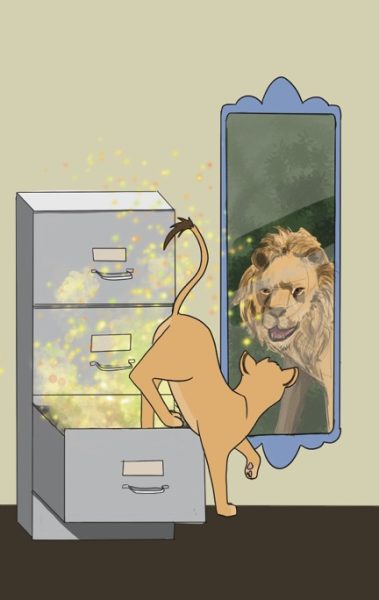Normalizing Physical Contact
December 7, 2018
I had a teacher in High School who slapped all the students he liked. They were little loving cheek taps and faux-slaps; everyone knew they were done out of affection. One day one of the students asked him why he did it, and he gave a really interesting response.
This teacher immigrated as a child from Argentina, and was shocked by how our culture voices affection. All his teachers, all the adults in his life for that matter, were authentically affectionate, giving students hugs and pats on the back.
But when he got to the United States, he told us, he watched violent movies and saw how the kids played on the playground, how mean they were to each other, and was shocked by how our culture treats violence. Caring is voiced through meanness, hatred is voiced through fake smiles.
He pointed out how we, as a culture, are sensitive to affection, but not to violence. Movies provide a great example of this. It has to mean something that parents are more willing to let their kids watch a creature get shot than an intimate romantic scene. When Bambi’s mom and Old Yeller get shot we respond with silent internalization of that trauma and hardly talk about it. Little things like this set the stage for the desensitization of violence, and initiate a learned unwillingness to talk about serious painful emotion. Children are happy to verbalize their disgust with cute romance–kids let out a proud “ewww” in the “Lady and the Tramp” scene where the dogs kiss accidentally. They learn: Violence and sadness hurt, but we don’t talk about that. Affection is gross, we do talk about that.
There is something fundamentally wrong with the fact that we are more comfortable with violence than affection.
I think this perspective on touch comes down to the level of sexualization in our culture. Affection is assumed to be sexual, and thus wrong, when that isn’t really how it works.
Bare bodies are forbidden; just think, one of the most common nightmares people have is about being naked in a public place. Not long ago in our evolutionary development we were naked around each other all the time.
The more something is restricted, the more power it has, and that’s the danger of modesty. In supporting modesty, we are making it less and less ok (and safe) to be immodest.
I say this because modesty has created a taboo around affection. Because we are all under wraps (literally and figuratively), we are hypersensitive to any deviation from the status quo of human interaction. Anything above and beyond a handshake or a high five and we are worried it signifies something greater, when in reality, people should be able to express care and closeness in a relationship without the assumption that they want romance or sex.
There is a host of data that proves the importance of touch. Psychologist Harry Harlow found that young monkeys, after being left alone in a cage for a while, choose a fluffy fake monkey over a metal monkey with milk after their release, demonstrating a desire for comfort before hunger satiation. Research from Carnegie Mellon University shows that hugs lead to a stronger immune system. Any kind of contact, even professional massages, can make people feel less lonely.
We often cuddle with our dog before we cuddle with our friends, and relationships with dogs couldn’t be farther from romantic (hopefully). It’s all quite absurd. The social dance we do is one of extreme deception, and that deception is really for the benefit of nobody.






